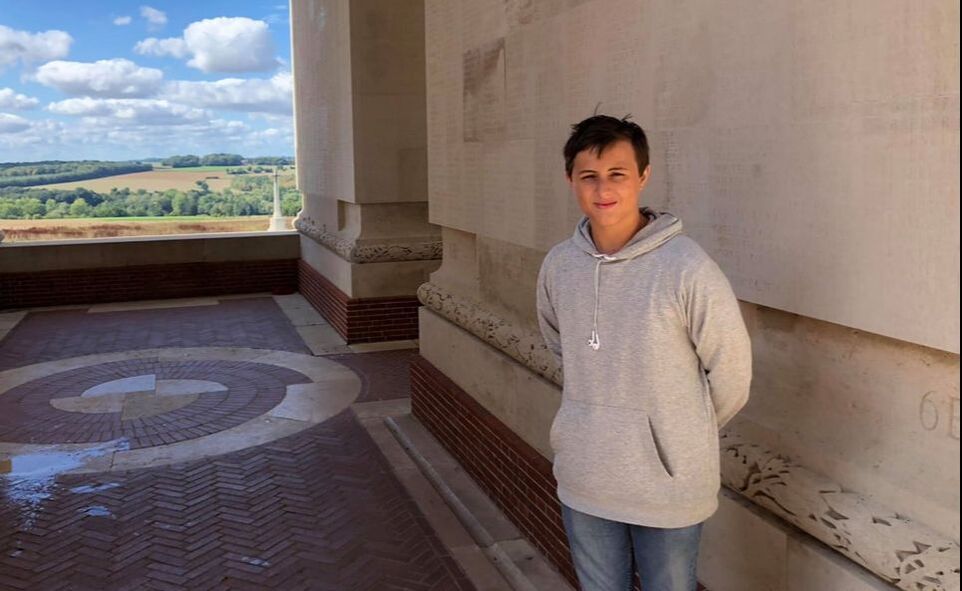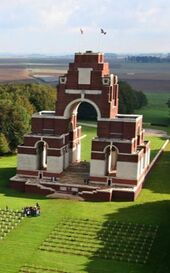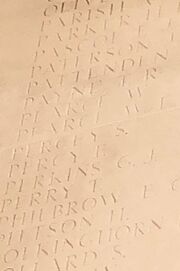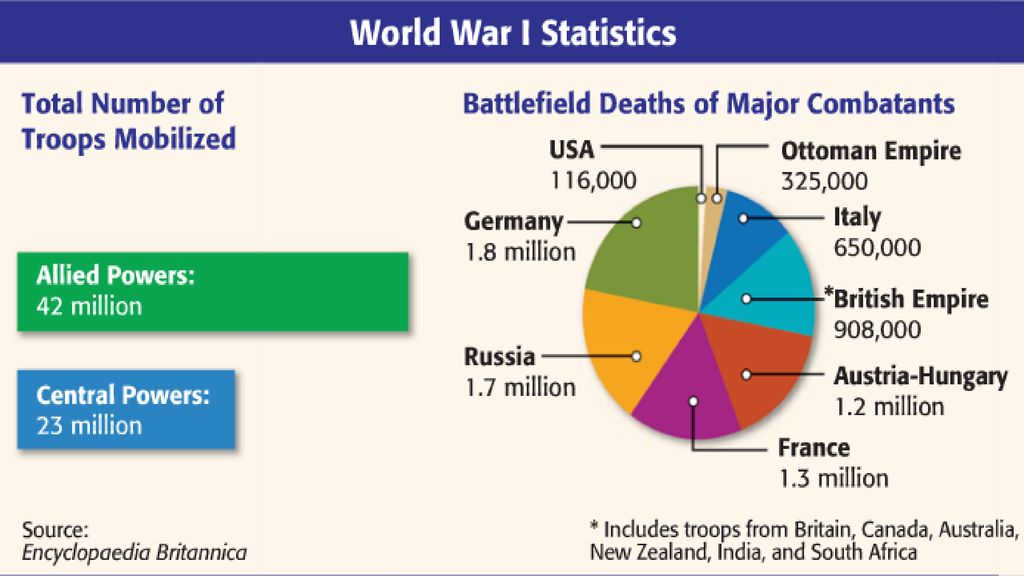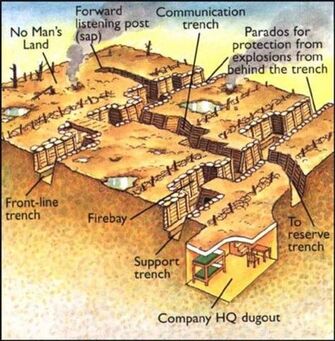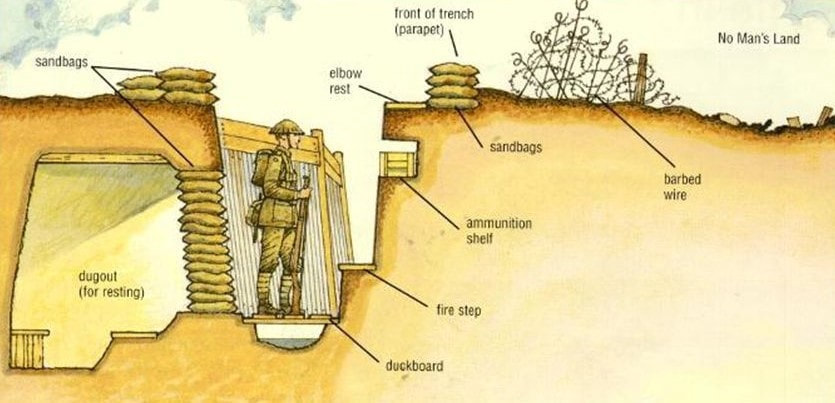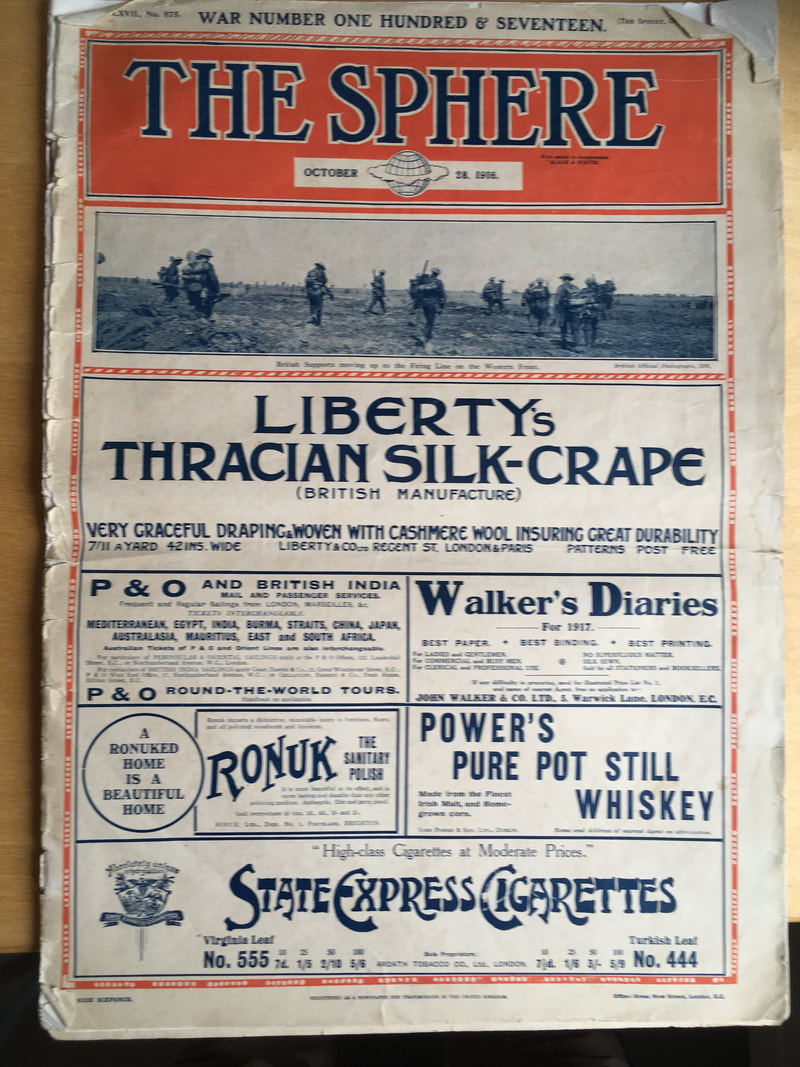Lesson 8 - The First World War
Big questions and some more answers
In the last lesson we once again addressed some of those big questions about warfare that we set out at the start of this unit. The Italian wars of unification, of which the Battle of Solferino was the most important, marked a watershed between first generation and second generation warfare. The industrial revolution had begun to transform warfare but in many ways the wars of this period still resembled the 'limited' wars of the 18th century, fought between monarchs with territorial ambitions. The brutal American Civil War (1861-65) provided a glimpse of the future of warfare fought for ideas with industrial weapons but these lessons were largely ignored. If Solferino is historically important, it is not for the nature of war itself, but rather for beginnings of an international humanitarianism that was inspired by the work of Henry Dunant. The International Red Cross and Geneva Conventions, would lead on to the creation of other international organisations such as the League of Nations (1920-46) and the United Nations (1945-) which set out prevent war from happening in the first place.
In the last lesson we once again addressed some of those big questions about warfare that we set out at the start of this unit. The Italian wars of unification, of which the Battle of Solferino was the most important, marked a watershed between first generation and second generation warfare. The industrial revolution had begun to transform warfare but in many ways the wars of this period still resembled the 'limited' wars of the 18th century, fought between monarchs with territorial ambitions. The brutal American Civil War (1861-65) provided a glimpse of the future of warfare fought for ideas with industrial weapons but these lessons were largely ignored. If Solferino is historically important, it is not for the nature of war itself, but rather for beginnings of an international humanitarianism that was inspired by the work of Henry Dunant. The International Red Cross and Geneva Conventions, would lead on to the creation of other international organisations such as the League of Nations (1920-46) and the United Nations (1945-) which set out prevent war from happening in the first place.
|
|
The late 19th century was a time of enormous optimism, there was nothing that humans couldn't achieve, including lasting peace. Science was unlocking the mysteries of nature, countries were becoming increasingly democratic and thanks to the Industrial Revolution people were living longer, healthier lives with greater material comfort than any time in human history. Life expectancy at birth in the mid-19th century in Western Europe had been around 40 years for males and 42 years for females. These figures increased to around 45 and 50 years respectively by 1901. The first decade of the 20th century was the glorious Edwardian period in England or La Belle Époque in France. (See film left) Then the First World War happened.
|
Heritage Object - S. Percey, The Thiepval Memorial, la Somme, France
|
The Thiepval Memorial to the Missing of the Somme is a war memorial to British and South African servicemen who died in the series of Battles on the Somme during the First World War between 1915 and 1918. Every name that is listed is a man killed, whose body was never recovered or identified. There are some 72,337 names. One of the names is that of Sidney Percey (right). Born in Cardiff, Wales in 1891, he volunteered to fight just after Christmas 1914. He briefly returned home after the birth of his daughter in February 1915. He was killed at the Battle of Loos in 1915. According to the family history, he was killed by an exploding mine. He was 23 years old. As with most of the deaths in war in the 20th century, he never saw who killed him. His daughter born in 1915 was my grandmother. The boy above in the photo taken at Thiepval in 2018, is his great, great grandson.
|
A bit of background
In the 40 years after Italian and German wars of unification Europe was at peace but preparing for war. Before 1914, Europe was divided into two heavily armed camps of alliances: France, Britain and Russia on one side, Germany, Austria-Hungary and Italy on the other. The rise of Germany as Europe's pre-eminent industrial and military power had unbalanced the European continent, which since Napoleon had attempted to avoid a similar domination by a single power. The alliances were an attempt to deter either side from starting a war and their armies were now to be numbered by millions of men.
The technological developments of warfare had continued apace. The industrial revolution entered a new phase with the development of the internal combustion engine and electricity, which amongst other things enabled the development of powered flight from 1903 (Wright brothers) and new steam and diesel powered battleships. (Dreadnought 1906). Where European nations were fighting it was in Africa or in the Far East as they staked out their claims for empire. European nations enjoyed significant technological advantages over native peoples and used this to their advantage in the late 19th century. (Matu 6)
World War 1 - The first 'total war'.
In the 40 years after Italian and German wars of unification Europe was at peace but preparing for war. Before 1914, Europe was divided into two heavily armed camps of alliances: France, Britain and Russia on one side, Germany, Austria-Hungary and Italy on the other. The rise of Germany as Europe's pre-eminent industrial and military power had unbalanced the European continent, which since Napoleon had attempted to avoid a similar domination by a single power. The alliances were an attempt to deter either side from starting a war and their armies were now to be numbered by millions of men.
The technological developments of warfare had continued apace. The industrial revolution entered a new phase with the development of the internal combustion engine and electricity, which amongst other things enabled the development of powered flight from 1903 (Wright brothers) and new steam and diesel powered battleships. (Dreadnought 1906). Where European nations were fighting it was in Africa or in the Far East as they staked out their claims for empire. European nations enjoyed significant technological advantages over native peoples and used this to their advantage in the late 19th century. (Matu 6)
World War 1 - The first 'total war'.
You could even describe the whole evolution of military technology as a process in which enemy lines have grown farther apart. From clubs and daggers to bows and arrows, and from muskets and cannon to bombs and grenades. Over the course of history, weaponry has got ever better at overcoming the central problem of all warfare: our fundamental aversion to violence. It’s practically impossible for us to kill someone while looking them in the eyes. Just as most of us would instantly go vegetarian if forced to butcher a cow, most soldiers become conscientious objectors when the enemy gets too close...
Aside from long-range weapons, armies also pursue means to increase psychological distance to the enemy. If you can dehumanise the other — say, by portraying them as vermin — it makes it easier to treat the other as if they are indeed inhuman.
Rutger Bregman - Human Kind (2020)
Rutger Bregman, in his recent history, identifies the central problem of warfare as mankind's reluctance to kill. The industrialisation of warfare between 1914 and 1918 made significant 'progress' in overcoming this problem and the number of casualties rose accordingly. The numbers killed in the First World War were unprecedented.
|
Part of the reason for the increased numbers of casualties is to be explained by the fact that both sided were evenly matched and the technology favoured defence rather than attack. Both sides built elaborate systems of trenches that were protected by machine guns and barbed wire. (see below) As a result, attempts to break through the defences came at extraordinarily high costs in human lives. For example, on the first day of the Battle of the Somme, 1 July 1916, the British forces suffered 57,470 casualties, including 19,240 fatalities. |
Technology developed very quickly during the First World War, partly in attempts to devise new ways of breaking through the lines of trenches. Increasingly powerful artillery was developed, airplanes were used to record enemy positions, tanks and other motorised armoured vehicles were introduced and poison gas shells introduced a frightening new form of 'chemical warfare'.
|
|
|
|
The First World War was unlike any previous wars because of the scale and extent of the fighting. Millions of men were mobilised to fight all around the world. But the war was not restricted to the battlefield. Civilians were involved in helping to fight the war from the 'home front' in the munitions industry for example and they were also subject to significant control and mobilisation by their governments. Government took direct control over the economy to make sure essential supplies were produced and distributed. Food supplies were strictly controlled (rationed) and this time newspapers were restricting in their reporting of events. In brief this was a 'total war'.
The film below 'Killing Fields' is a one-hour overview of the First World War from the point of view of 'ordinary' people. You don't have to watch it now, but it is something I will expect you to see later in the course. The more often you see it, the more likely you are to understand and remember the main features of the war. So if you can find an hour now...
The film below 'Killing Fields' is a one-hour overview of the First World War from the point of view of 'ordinary' people. You don't have to watch it now, but it is something I will expect you to see later in the course. The more often you see it, the more likely you are to understand and remember the main features of the war. So if you can find an hour now...
Activities
|
Part 1 - The changing nature of warfare - World War One
1. Why was the period before the First World War known as La Belle Époque? 2. Explain how and why trench warfare developed. 3. Choose one significant technological development - planes, tanks or gas - and watch the film about it. Explain how this new technology was used during World War 1. 4. What was different about the war memorials constructed after the First World War compared to earlier wars? Can you suggest why the memorials were different? |
|

